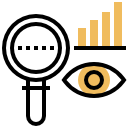


Take a look at some interesting local and international publications
here.?
 ?
?

World AIDS Day takes place on the 1st December each year. It’s an opportunity for people worldwide to unite in the fight against HIV, to show support for people living with HIV, and to commemorate those who have died from an AIDS-related illness. Founded in 1988, World AIDS Day was the first ever global health day.
 Today, the world population is over 7 billion people. More than one billion people, or approximately 15 per cent of the world's population, live with some form of disability. 80 per cent live in developing countries.
Today, the world population is over 7 billion people. More than one billion people, or approximately 15 per cent of the world's population, live with some form of disability. 80 per cent live in developing countries.
Persons with disabilities, “the world’s largest minority”, have generally poorer health, lower education achievements, fewer economic opportunities and higher rates of poverty than people without disabilities. This is largely due to the lack of services available to them (like information and communications technology (ICT), justice or transportation) and the many obstacles they face in their everyday lives. These obstacles can take a variety of forms, including those relating to the physical environment, or those resulting from legislation or policy, or from societal attitudes or discrimination.
International Volunteer Day is a chance for individual volunteers, communities and organizations to promote their contributions to development at the local, national and international levels. By combining UN support with a grassroots mandate, International Volunteer Day is a unique opportunity for people and volunteer-involving organizations to work with government agencies, non-profit institutions, community groups, academia and the private sector.
 Find out more about
International Volunteer Day (IVD) 2018, “Volunteers build Resilient Communities”.
Find out more about
International Volunteer Day (IVD) 2018, “Volunteers build Resilient Communities”.

Human Rights Day is observed every year on 10 December – the day the United Nations General Assembly adopted, in 1948, the Universal Declaration of Human Rights. This year, Human Rights Day marks the
70th anniversary of the Universal Declaration of Human Rights, a milestone document that proclaimed the inalienable rights which everyone is inherently entitled to as a human being - regardless of race, colour, religion, sex, language, political or other opinion, national or social origin, property, birth or other status. It is the most translated document in the world, available in more than
500 languages.

Almost one billion people live in mountain areas, and over half the human population depends on mountains for water, food and clean energy. Yet mountains are under threat from climate change, land degradation, over exploitation and natural disasters, with potentially far-reaching and devastating consequences, both for mountain communities and the rest of the world.
 16 December is a day of great significance in South Africa due to two historical events that took place. The first of these was in 1838, when the Battle of Blood River took place between the Voortrekkers and the Zulus, which was commemorated since then as the Day of the Vow.
16 December is a day of great significance in South Africa due to two historical events that took place. The first of these was in 1838, when the Battle of Blood River took place between the Voortrekkers and the Zulus, which was commemorated since then as the Day of the Vow.
The second historical event that took place on 16 December was in 1961, when Umkhonto we Sizwe (MK) was formed. This was the military wing of the African National Congress (ANC), which was launched to wage an armed struggle against the apartheid government.
Read more about the history of the Day of Reconciliati?on.
*Image from South African History Online
The total number of international migrants has increased from an estimated 175 million in 2000 to 244 million persons in 2015. Nearly two thirds of all international migrants live in Europe (76 million) or Asia (75 million). Migration is now more widely distributed across more countries. Today the top 10 countries of destination receive a smaller share of all migrants than in 2000.
One of every ten migrants is under the age of 15. The impact of remittance flows is also significant having reached $436 billion in 2014 – far exceeding official development assistance and, excluding China, foreign direct investment.

See how the
International Organization for Migration
dedicates its work to promoting humane and orderly migration for the benefit of all by providing services and advice to governments and migrants.

The new Sustainable Development Goals (SDGs) agenda is centred on people & planet, underpinned by human rights and supported by a global partnership determined to lift people out of poverty, hunger and disease. It will be thus be built on a foundation of global cooperation and solidarity.
International Human Solidarity Day is: